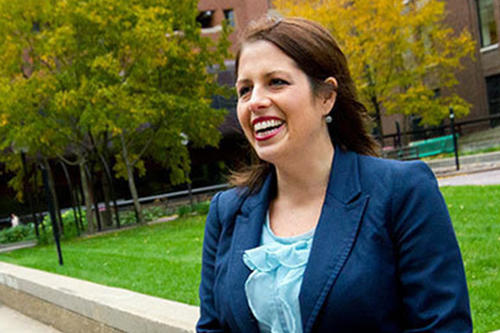
Christmas Eve 2014 was Nicole Metcalf’s low point. She had just been arrested for possessing and selling meth. Her addiction was all consuming. Meanwhile, relatives were seeking custody of her children.
“My family had washed their hands of me. I was so broken,” says Metcalf, a resident of Thomson, Minnesota.
Rather than serving prison time, Metcalf entered into Carlton County Drug Court, a high-accountability program centered around long-term treatment.
Drug courts have been in the national spotlight after the White House’s national opioid commission recommended states increase their use. The focus on treatment rather than punishment is aimed at breaking the addiction cycle. For Metcalf, it worked. She got sober, entered treatment, mended relationships with family, and graduated the program in 2016.
Laura Palombi, assistant professor at the U of M College of Pharmacy, Duluth, has worked with Metcalf and many others to overcome addiction. Palombi visits the Carlton County Drug Court every week. Drug court is one of her primary focus areas as she works to find answers to the opioid crisis.
An article by Palombi shows drug court makes a difference: it’s both cost-effective and linked to reduced recidivism.
“It’s remarkable to see how our drug court participants have transformed their lives,” she says.
But even as drug courts have shown success, opioid abuse continues locally and nationally.
The Duluth area in particular has been hit hard: St. Louis County has the highest opioid overdose death rate in Minnesota.
That’s why Palombi and several others in the College of Pharmacy are partnering to create community-focused interventions, including hosting forums to educate the public and gather community members around the issue.
They’re also organizing medical education courses and training for all opioid prescribers—doctors, pharmacists, nurse practitioners, and dentists—and building awareness of naloxone, an overdose antidote.
For Palombi, even helping one person—someone like Metcalf—makes it worth it.
“It’s a ripple effect,” she says. “When you can help one person recover, you don’t know what kind of impact that will have on an entire community.”
-------
A version of this story originally appeared at Health.umn.edu.
- Categories:
- Health




